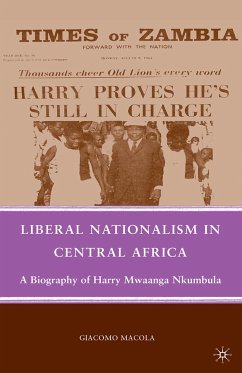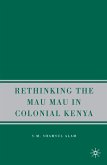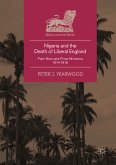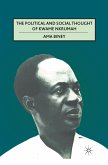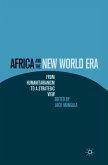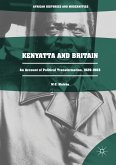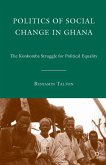Dieser Download kann aus rechtlichen Gründen nur mit Rechnungsadresse in A, B, BG, CY, CZ, D, DK, EW, E, FIN, F, GR, HR, H, IRL, I, LT, L, LR, M, NL, PL, P, R, S, SLO, SK ausgeliefert werden.
"Well-researched biographies of post-colonial African political leaders are few and far between, so Giacomo Macola's excellent study of the life and politics of Harry Nkumbula, Zambian nationalist pioneer and opposition leader, is particularly welcome. This then is a book about the deconstruction of established narratives of nationalism, with relevance not just to Zambia but to the continent as a whole. Macola's distinctive polemic is one of the most important studies of African nationalism published in recent years." - Journalof Southern African Studies

